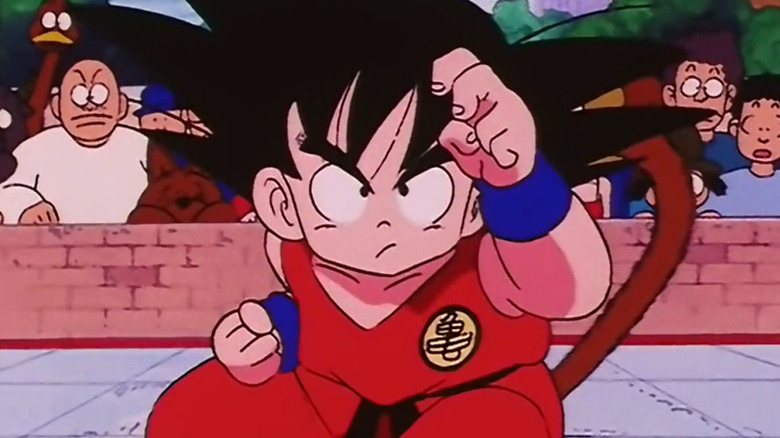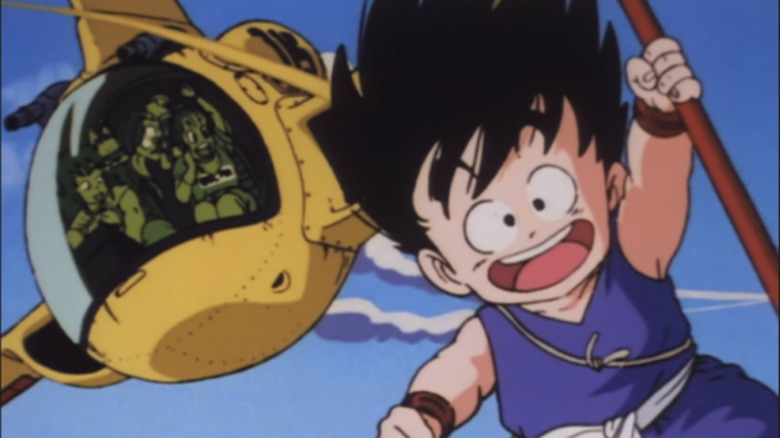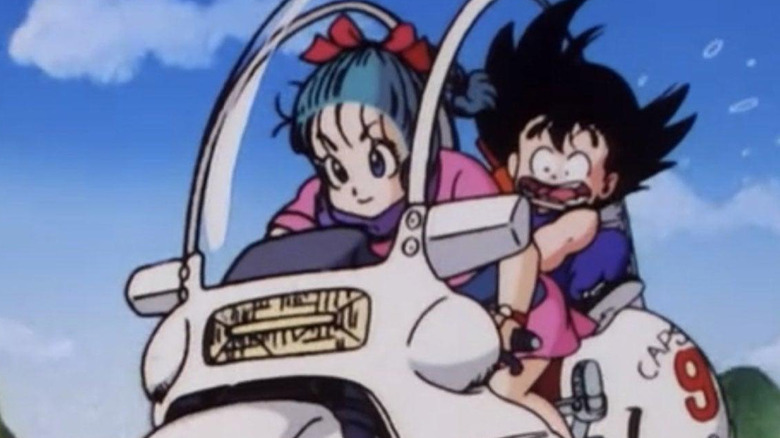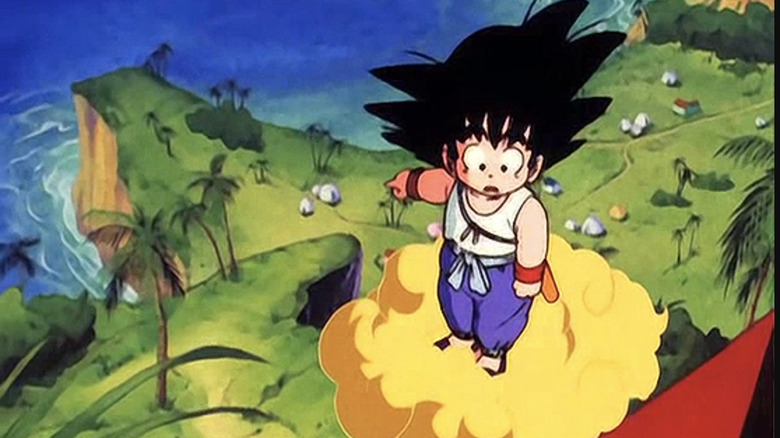You Can (Kind Of) Thank Jackie Chan For Dragon Ball's Creation
All it took for Akira Toriyama to create his iconic series "Dragon Ball" was a little push from his editor and his love for Jackie Chan films. Initially published in 1984, "Dragon Ball" was Toriyama's follow-up to his successful comedy series "Dr. Slump." Although the mangaka had his roots in comedy when starting his career, the author was looking to try another genre. What better source of inspiration than action cinema?
Toriyama's soon-to-be classic shonen would undoubtedly pull from a myriad of references. Still, there is one particular actor and filmmaker whose body of work would become something of a foundation to go off of for the mangaka. That filmmaker is Jackie Chan, of "Police Story" and "Rush Hour" fame, as well as many other films that Toriyama would be looking to replicate in tone and genre. However, it wasn't just Jackie Chan's work that inspired the author. Toriyama's love of several different films, and Chinese culture specifically, helped to shape "Dragon Ball."
Goku and the Drunken Master
Toriyama details how he decided on his next genre of manga in an interview translated by Kanzenshuu:
"I had just ended 'Dr. Slump,' and for the time being, I was thinking about what I should do for my next serialized work. I had many meetings with my editor at the time, Torishima-san. As it happened, at that time, I loved Jackie Chan's movies and had seen 'Drunken Master' dozens of times. Since I liked that sort of thing, Torishima-san advised me to try and make a kung-fu shōnen manga, so I drew a one-shot called 'Dragon Boy.' That got an incredibly positive response from the readers, so I decided to go that route for my next serialized work."
"Dragon Boy" would be something akin to a test-run for "Dragon Ball" as a manga, with the two-chapter manga using different names and characters than what would later be known as "Dragon Ball" while still having a similar tone and atmosphere of the soon to be shonen. The tone would become a balance of comedy and action, a turning point in Toriyama's career thanks to the influence of the filmography of Jackie Chan. "Drunken Master" is just one of many films that blends intense action with physical comedy. It's the sort of balance Toriyama would attempt with "Dragon Ball," before fully moving into action with sequel series "Dragon Ball Z."
A celebration of Chinese culture
Toriyama wouldn't just pull from movies as inspiration. The author would look to other written works when creating the world and atmosphere of "Dragon Ball," with the mangaka saying so in the same interview, pulling from one classic novel when working on the lore of it all:
"Since 'Dr. Slump' had been in a Western scenery, I decided to change that impression and make my new work have a Chinese scenery. And if I was going to give it a Chinese feel, I thought I would make the story based on 'Journey to the West.' 'Journey to the West', after all, is absurd and has adventurous elements, so I guess I decided to make a slightly modernized 'Journey to the West.' I thought it would be easy if that story served as the basis since all I would have to do would be to arrange things. (laughs)"
Chinese culture was essential to the creation of "Dragon Ball." Jackie Chan and his films inspired the tone, with "Journey to the West" evoking similar plot similarities to what would become "Dragon Ball." One example of similarities between the main protagonist of "Journey to the West" and "Dragon Ball" is Goku's weakness being his tail, just as Wukong's tail in "Journey" is a liability in battle. Calling "Dragon Ball" a modern retelling of "Journey to the West" isn't far fetched.
A newfound appreciation for stories of old
Toriyama's love for Jackie Chan's films shows a greater appreciation of Chinese culture. Weekly Shonen Jump has always been a magazine filled with stories from creators who take inspiration from a myriad of cultures. Toriyama's creation of "Dragon Ball" shows the author's ability to take an appreciation of a culture and turn it into a compelling story without appropriating it. "Dragon Ball" being rooted in Chinese film and literature would, in turn, open up readers to discovering the stories that inspired it.
Appreciation for "Dragon Ball" leading to a whole new audience for Jackie Chan's "Drunken Master" and Wu Cheng'en's "Journey to the West" is a circle-of-life moment that the optimist in me sincerely hopes has come to fruition at one point or another. Because, without Jackie Chan or Wu Cheng'en, we might not necessarily have "Dragon Ball" as we know it today, or the sequel series that came after it.



